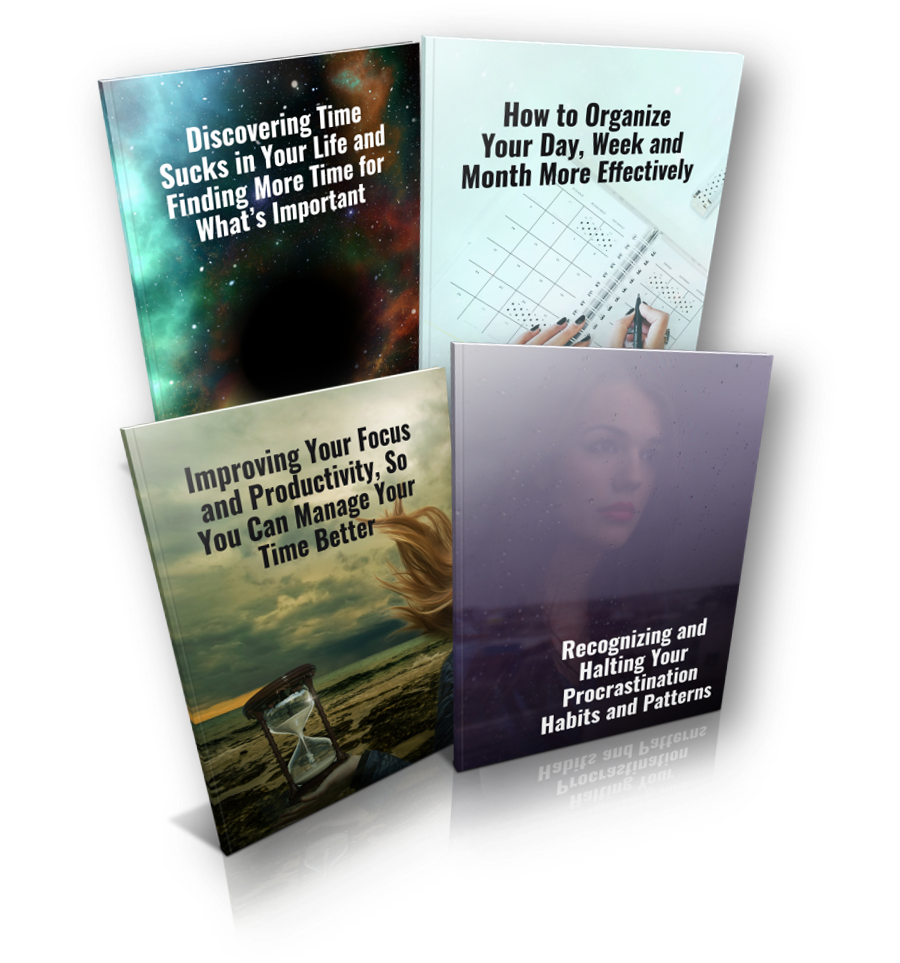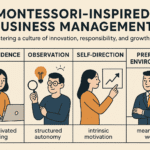
Outsource: Prioritize your time by eliminating the unnecessary tasks and outsourcing your weaknesses. In this way, your time and focus is directed to where you’ll make the biggest impact for your business.
Eliminate temptation to waste time: This is especially so if you are in the online industry. There are so many distractions online, from news to gossip to videos etc. One way to do away with such distractions is to deliberately cripple the technology to boost productivity. You do this by restricting access to sites that distract you for the period you are working.
Wake Up Early: Early-risers have more productive mornings, get more done, and report less stress on average than “late-risers.” Early mornings are usually very productive times to complete important tasks. You will be able to accomplish more in the same amount of time.
Take Your Breaks Seriously: Don’t eat lunch in your office. Use lunch time to rejuvenate, refresh and to really take a break. You have to re-energize by getting out of the chair and out of that room. After lunch, you will be much more productive because you have the renewed energy to complete your tasks more efficiently.
Leave Your Work Unfinished Before Your Break: This helps you to zap right back into the flow once you get back because your brain craves completion. This is actually a famous writing tip from Hemingway – he always left the last sentence unfinished, so he could pick up again easily the next session.
One Thing at A Time: Multitasking cuts back on your productivity so instead of juggling multiple projects at once, focus on one thing at a time by scheduling out blocks of time — or even entire days — during which you only concentrate on one task or one project.
Salvage “Dead Time” With Technology: “Dead time” are the small pockets of times spent while waiting in offices, waiting in airports, waiting before a lecture, waiting on the bus etc. Be productive at the moment dead time begins by engaging in activities such as reading things that will help in your business or increase the efficiency of your daily tasks.
Begin with The Least Urgent Task: The idea is to complete your tasks before they become urgent. And the only way to do that is to work on the least urgent tasks first.
Schedule the Fun First: This tip will kill procrastination. If not it will drastically reduce it because by doing the fun things first, your brain won’t feel threatened when you want to do the work, because it will know that the fun is guaranteed.
Find Out and Capitalize On The Times You Are Most Productive: If you are far more productive at a certain time of the day, get more done between that period of time. During your unproductive times, go to the gym or engage in other activities that requires not much thought and do the hard stuff only in your productive times.
Time-Sensitive Tasks: Look at all of your to-dos and first identify which ones are time-sensitive — the ones that need to be done that day or that week. Prioritize those tasks then pick from the other to-dos, one big project per day to tackle once the time-sensitive items are done.
Consolidate Email Accounts: Have all your email accounts forward into one email client, so you only have one place to check emails. Through IMAP, you keep all of your emails synchronized with your mobile device and backed up to your hard drive.
Prevent Possible Interruption: In order to enter a state of deep focus and concentration, it is important to prevent interruption. In this way, you can get into momentum or flow. Anticipate what may interrupt you, such as the cell phone, people around you, or the Internet, then take the necessary steps to eliminate any possible interruption as much as possible.
Plan: Take the first 30 minutes to plan the rest of your day by making a list of the important tasks that you need to have done today and stay focused on these items.
Work Less, Get More Done: Set a time limit on your work sessions and you will find that you get more done. A benchmark you can follow is to limit both your work sessions (60-120 minutes), and your weekly output (40 hours). Working hard is not just about the quantity (time), but about quality. To increase the quality, you need to decrease the quantity. There is a sweet spot for every one of us. Find it.
Get an Outside Perspective: When you get overwhelmed and too emotionally involved in everything that is happening, you tend to not be able to make clear decisions. Get an outside perspective from a business partner, mentor, coach or friend and sort out what’s really most important now. An outside perspective can open you up to new possibilities.
Use A Calendar System: Keep what you have to do and all the major deadlines in a calendar system like Google Calendar. In this way, you can easily prioritize and plan your time hence boosting productivity. Google Calendar can also help you keep track of random assortment of appointments and the places you need to be at. It also facilitates coordination with business partners by allowing two or more people to synchronize their calendars.
Take Immediate Massive Action to Do What You Need to Do: The key to productivity is actually do what you need to do. Be careful not to get trapped by secondary activities.
Schedule Like-Minded Tasks Together: Block the similar to-dos together. For example, set aside time to make outbound calls, and make one right after the other. Plan times during the day to check your e-mail, Twitter and social media to avoid a huge time trap.
Do Something Else If You Find It Hard for You to Make Progress In The Task At Hand: It is typical to experience obstacles in tasks. Sometimes, it is frustrating that the more urgent and important something is, the harder it is for you to make progress. If you’ve hit a wall like this, you need to break the downward spiral of procrastination and bad feelings. If you can’t push yourself to do something, just stop the losing battle and go for a walk. Chances are, on your return, you will jump on that task with unexpected eagerness.
Go Into “Isolation”: It is imperative to remove all external distractions in the event that you find your plate filled with all high-priority tasks. Focus all of your energy on one task at a time until it’s complete, and then move on to the next one. Once all priorities are cleared, you may rejoin society!
Procrastinate Productively: Procrastination is always number one on the unproductive list. Most teachings teach you to avoid and refrain from procrastinating. However, in the event that you must procrastinate, try to procrastinate on something with a later deadline rather than something frivolous.
The Power Of 3: Give yourself 3 must-complete tasks each day (usually fairly large tasks) and take short breaks between each one to give your mind a break and switch gears.
Strike A Balance Between Handling Urgent Issues and Long Term Solutions: Some of us tend to handle all the things that pop up as soon as they come. Although it is a good habit to complete tasks that come up as soon as you can, you’ll never move forward as a business if this continues. Divide your time between what’s urgent and what’s important and make an even split between handling urgent issues and working on long term solutions. Learn to outsource urgent matters while you handle the important ones.
Treat Perfection Like a Process, Not An Achievable State: Perfectionism can be crippling to productivity. Some of us can’t even start projects because of perfectionism. Being a perfectionist and wanting to achieve perfectionism over a certain project is not a bad thing, however it is unrealistic to expect it. Aim instead for excellence and correction along the way.
Show Up for Meetings on Time: It is a huge waste of time when people arrive late at meetings and the chair of the meeting, out of politeness, would reiterate what had been said in the meeting earlier. In order to influence punctuality in others, you yourself have to be the example and show up on time for all meetings first.
Focus on What Really Matters: Not everything is a priority. Spend some time on planning to determine the most critical tasks that you need to take on. It’s usually much better to concentrate on one or two priorities and do them really well, instead of doing many things and having mediocre results.
End Your Day on A Positive Note: Devote the final hours of your workday to some of your least-pressured tasks like paperwork. You will feel a sense of accomplishment by completing at least one thing before the day ends.
Write Lists and Rank Your Tasks: Written lists are one of the best tools for productivity. After you have written your list, give each item a numbered ranking based on priority and go according to it till completion.
Imagine Competition While Working: This works for some people: Pretend that all the people around you are potential clients judging your work habits. Imagining this competition will make you work harder and more productively.
Define Roles and Divide Work: If you are heading a team, define distinct roles for each member on your team and divide work accordingly as well. There are some people who will want to do everything. With clearly defined roles, everyone on your team is clear on who should do what. In this way, your team will be more productive and tasks get completed faster as well.
Find Help When in Doubt: You might require skills that are outside your immediate field to complete tasks at hand. Find others who have those skills and might be interested in working with you or find people who might know someone in their network who would be perfect for it. This increases productivity drastically.
Search for Tools That Increase productivity: There are a variety of tools out there online or offline that help you increase productivity. One such example is Evernote, a free tool that allows you to track task lists. It forces you to prioritize your to-do list.
Being Around the Right People: Experience has shown that when you surround yourself with smart people who have similar working styles as you, your productivity tends to increase many folds. This is because they spur you on, rather than bring you down.
Plan on Wasting Time: Work intently with no distractions for a given time, then give yourself (significantly shorter) blocks of time to be unapologetically unproductive.
Refresh and Re-Motivate: Step outside your immediate task to be refreshed and re-motivated. In that time, get a stranger’s feedback on your product, website, blog post, etc. You’d be surprised how often you are standing too close to the problem to see the obvious solution, and a third-party point of view can prove invaluable.
Complete Your Work Before Your Battery Runs Out: This can be a great motivation for some. Leave your battery charger at home and aim to complete your tasks before your computer battery runs out. This forces you to be productive through motivation.
Keep Everything Electronically: Laptops and other electronic devices are portable and to be productive and mobile, it is good to keep all your tasks electronically so you can do things on the go. In addition, if you’re working from a coffee shop or in a park, the last thing you want to be doing is shuffling papers. Become proficient in taking notes in PDF documents and get used to reading documents on your computer.
Assign Tasks You Can Do During Your Commute: Commuting usually takes up a bulk of your time. A way to increase productivity is to assign tasks that you can do on the go. For example, listening to business presentations.
Get a portable phone number: Google Voice gives you one number for all your phones, voicemail as easy as email, free US long distance, low rates on international calls, and many calling functions. This increases productivity for your business because with one phone you can work from home, different office locations and on the road. Being accessible to clients is crucial and that is why this is so important.
Signature Scan: Business reports, plans and other collaterals often require signatures. To save time and increase productivity, scan and save your actual signature as a graphic and insert it into Word documents as a picture. If it’s a PDF, save your signature as a Custom Stamp.
Cache Email: Make sure you can cache your e-mail because in this way, you can work on planes or in areas where you do not have an Internet connection.
Start Small: We tend to think big, blue sky concepts. The downside is that such thinking makes the barrier to entry – and action – quite high. To avoid “blue sky paralysis,” pare your idea down to a small, immediately executable concept. Once you’ve road-tested your idea on a small scale, you’ll have loads more insight on how to take it to the next level.
Create Simple Objectives and Revisit Them Regularly: Sometimes we get too caught up with new ideas that might make it impossible to ever really complete anything. The best way to avoid it is to write down a simple statement summarizing your objective at the start of each project. After which, be reminded to revisit it regularly.
Stick to A Routine: It can be tempting to do the more enjoyable things even if there is a lot of work to do. Procrastination can easily overcome us therefore, create a routine and stick to it. It will help create a pattern in terms of both work and leisure.
Do Away with Unnecessary Meetings: If there must be a meeting, make sure everyone knows what needs to be accomplished from the outset. If people are present who don’t help out with achieving that objective, let them leave. Always start your meetings with the question, “Do we all know why we’re here?” and then follows with, “Does everyone need to be here?”
Tackle the Toughest Nail First: Most people like to start with the easy stuff and complete them first. However, if we end up finishing the easy task first, we might end up procrastinating because we may feel complacent and contented to have completed some tasks. When we get to the tough part, frustration and stress sets in when we meet a challenge in the tasks. Thus, it is best to get a head start by completing the worst task first and slowly make a transition into easy ones, you’ll feel great to have completed so many things by the end of the day.
Practice saying “No.” : Guard your energy and focus closely. Saying “no” is an essential part of the productivity equation. Even when opportunities come, keep in mind that they might be distractions from the work you have at hand.
Get Organized: Being organized saves time. When you are organized, you will be about to readily access your work files and records when needed. Regardless of the organizational system that you use, you’ll save time if you can go right to a file or folder when you need it. This guide will help you get more organized: https://dmsachieve.com/productivity/
Expand Your Work Environment : As human beings, our mood flows from the space we occupy. A clean, streamlined space can empower you to think and act with clear focus. A cluttered, loud, or crowded work space can transform you into a distracted and unfocused version of yourself.
















